It is about organising wherever there are migrant, precarious, low-paid or marginalised workers willing to unite. It is about fighting outsourcing and structural race discrimination, disregard for workers’ rights and mainstream media bias on anti-exploitation struggles. It is about inspiring young people and making trade union history part of British education.
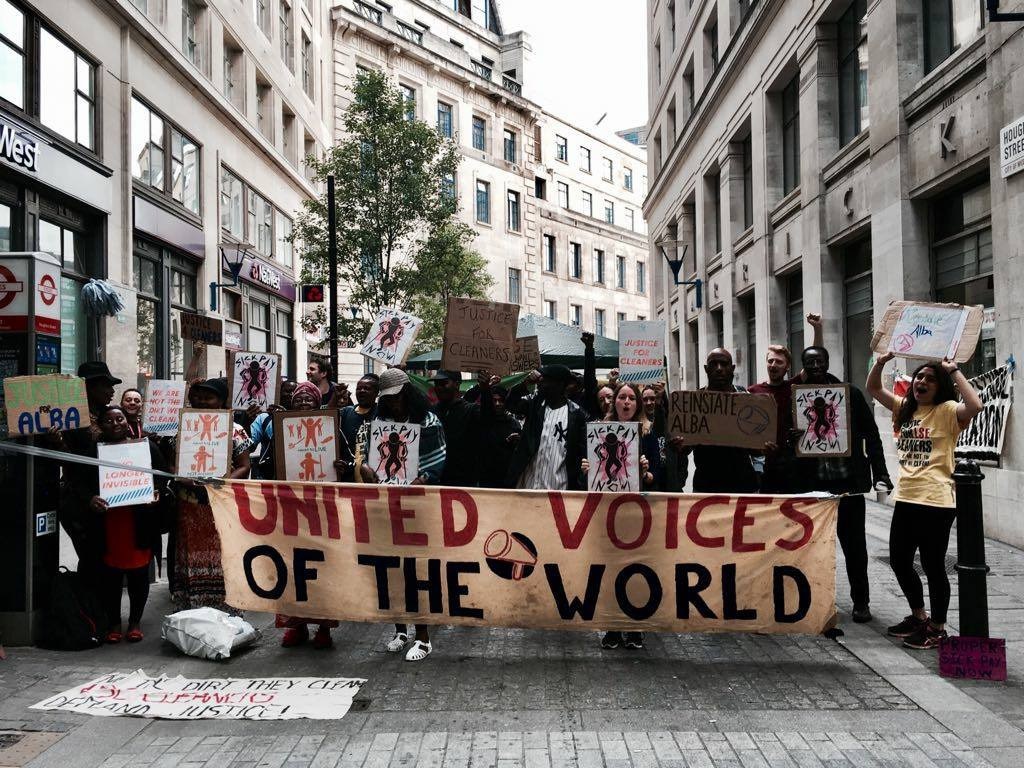 Graham Douglas
Graham Douglas
As the UVW point out, ‘sub-contracting and precarious work have been a constant feature of the labour market for centuries and “new unionism” began in the 19th Century’, but neo-liberalist economics has turbo-charged the situation since the 1980s and made it a global threat to workers.
Culture and traditions towards trade unions can vary widely between countries. In Sweden the strong tradition of collective bargaining was challenged by the US company Tesla, but the solidarity of the unions makes Elon Musk look like the loser. Recent interviews in The Prisma looked at cases in Belgium and Spain.
In Mexico the situation is very different, in a country plagued by mafia violence brutal methods are commonly used, especially against women and even by fellow workers. Amazon has shown how far employers are willing to go to block unions.
The precarious work situation and also the cost of rented accommodation faced by young people has resulted in rising support for right-wing political parties in several European countries. Although younger people are generally less inclined to racism and Islamophobia these parties are like trojan horses bringing racist ideology into the mainstream.
I continued my conversation for The Prisma with Petros Elia of UVW on changing conditions globally. He pointed to the importance of education in union work, and the lack of treatment of trade unions in British schools.
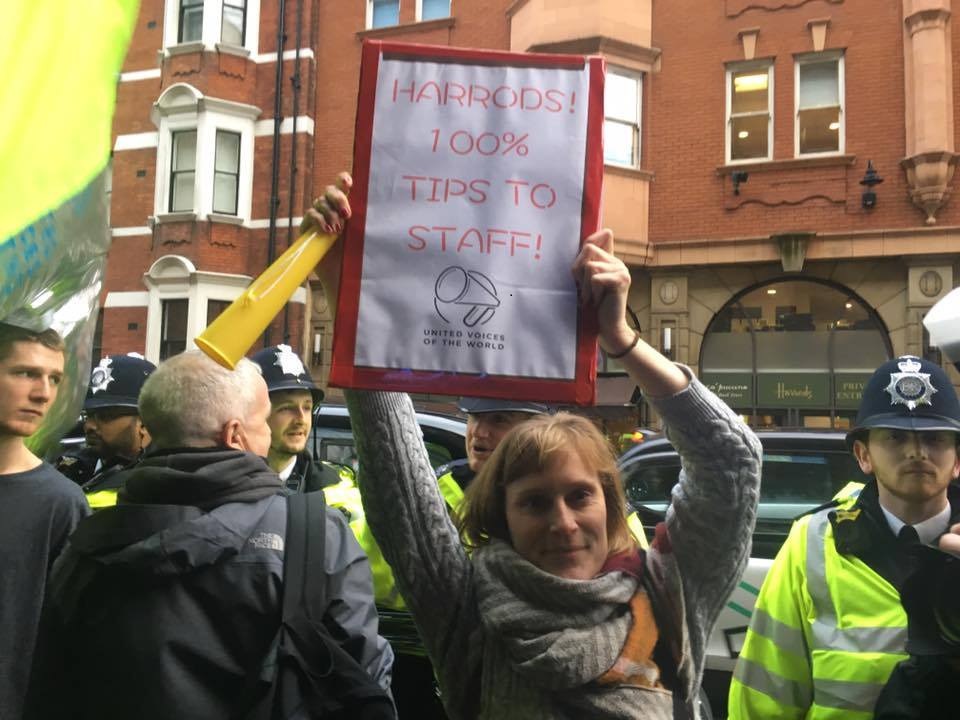 Many employers of migrants are transnational companies. Have you developed international links with other trade unions?
Many employers of migrants are transnational companies. Have you developed international links with other trade unions?
UVW is an internationalist trade union.
Many of our members have links with the unions and movements from their countries of birth, and UVW has responded to calls for international solidarity from grassroots unions in struggle, similar to UVW, that have come through via our members: Las Kellys, women cleaners and care workers in Spain, (Barcelona), IFOMS, a seafarers union in Burma during the military coup in Myanmar, Colombian food workers union Sinaltrainal, Zarzal, Sindicato “Mantero’, a grass-roots union of mainly undocumented Senegalese street-vendors in Spain and Central Sindical e Popular Conlutas (CSP-Conlutas) in Brazil. Our disputes have also received beautiful displays of solidarity from around the globe.
However, UVW works on a shoestring budget, all our activities are funded by our members, our small staff team is paid a flat rate, we do not have the resources to build strategic campaigns across borders to target the multinationals that our members work for. Instead, all our funds go towards supporting workers in struggle.
How should trade unions like yourselves respond to the new era of sub-contracting and precarious work?
The last 40 years of neoliberalism has brought the need for a new model of unionism which UVW is proud to play its part in.
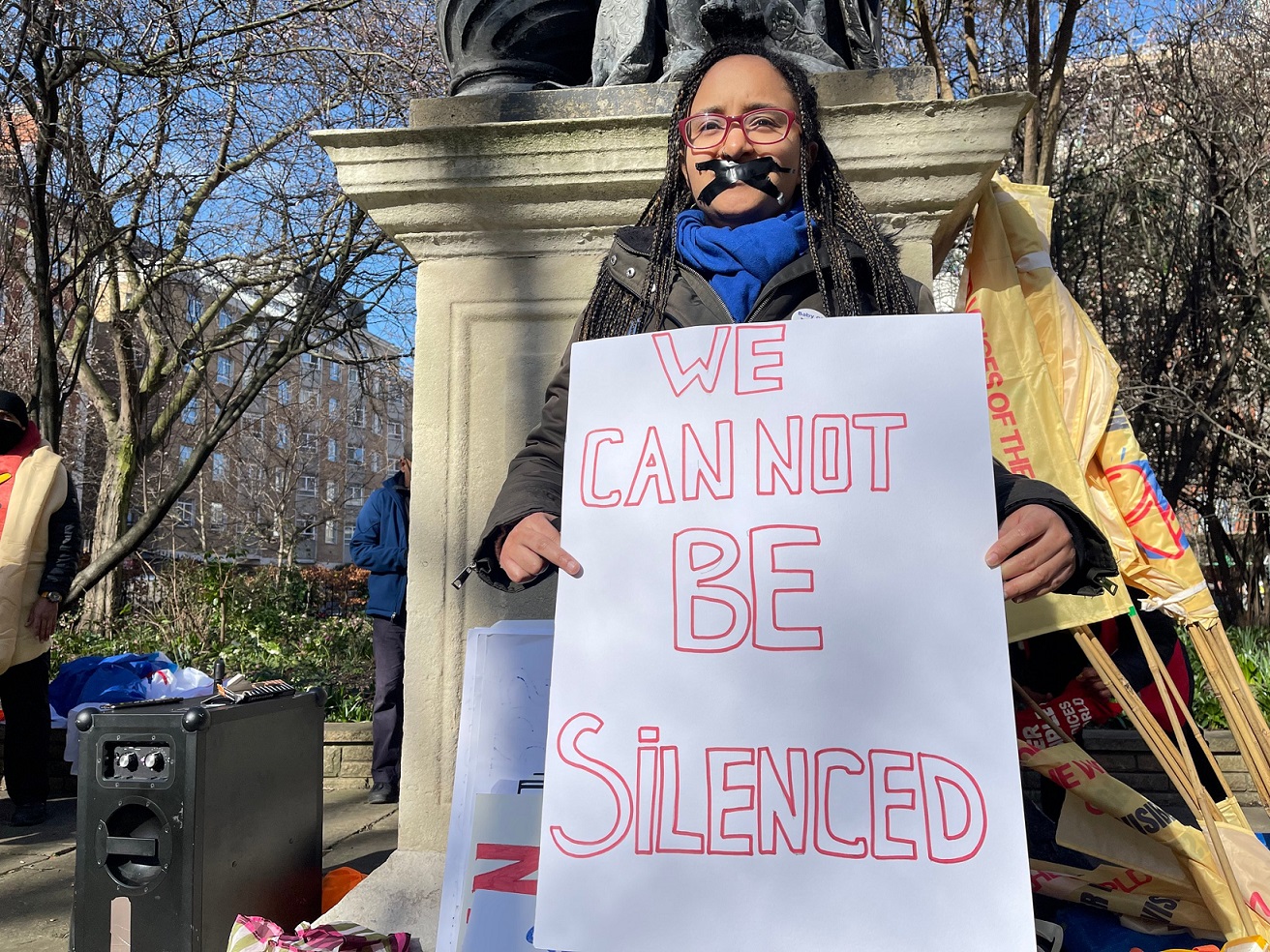 UVW members have responded to the poor working conditions that go with sub-contracting and precarious work by building community, learning about their rights, taking direct action in the streets and action in the courts.
UVW members have responded to the poor working conditions that go with sub-contracting and precarious work by building community, learning about their rights, taking direct action in the streets and action in the courts.
We do not leave workers behind because they are not “strategic”. Our organising focus is very direct and clear; we organise to take strike action and we do this wherever there are migrant, precarious, low-paid or marginalised workers that are willing to stand together. In the last 10 years, UVW members have not held back from fighting for what they need and deserve, despite the risks. For a small grassroots union, UVW, representing migrant and precarious workers of over 100 nationalities in as many jobs we punch way above our weight; in the past 15 months our members have voted for strike action 15 times; in 2023 alone, members in 10 different workplaces took strike action.
UVW was the first union to defeat outsourcing in higher education and the NHS, public institutions LSE, GOSH, St Mary’s – these wins alone have redistributed tens of millions of pounds to thousands of the lowest paid workers and not just UVW members.
Do court cases have a role as well as strikes?
We are also pioneering the fight against outsourcing at structural level. We have taken on sub-contracting and its discriminatory impact to court in an unprecedented legal claim at St George’s University, Royal Parks and the Ministry of Justice, which could change the world we live in for good.
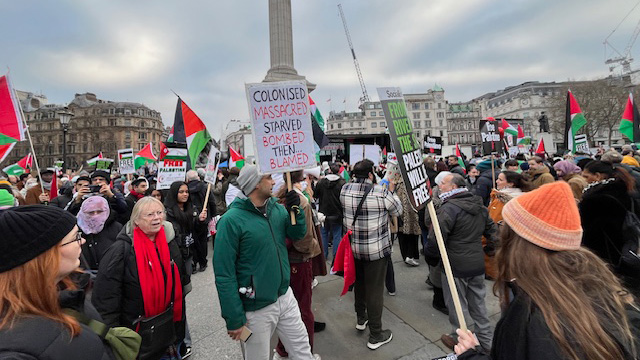 UVW had a major legal victory against the Royal Parks in the Employment Tribunal (ET) establishing that the charity’s policy to consciously choose to NOT pay their outsourced mainly Black and brown cleaners & attendants the London Living Wage (LLW), while guaranteeing it to their mainly white in-house employees, amounted to indirect race discrimination. We are facing opposition from the higher echelons of the British establishment for doing so and the case is at its appeal stage.
UVW had a major legal victory against the Royal Parks in the Employment Tribunal (ET) establishing that the charity’s policy to consciously choose to NOT pay their outsourced mainly Black and brown cleaners & attendants the London Living Wage (LLW), while guaranteeing it to their mainly white in-house employees, amounted to indirect race discrimination. We are facing opposition from the higher echelons of the British establishment for doing so and the case is at its appeal stage.
Our interviews with film-makers from Belgium and Spain revealed a big problem of apathy and lack of information among sub-contracted workers. Is there a role for education in trade union work?
Education runs through everything we do, we make space for our members, (who have several jobs, childcare responsibilities and face language barriers) to find out about their rights, learn how to demand them (collectively) and win them. We do this via Know Your Rights workshops (Sexual harassment, pensions, EU resettlement scheme) Representatives training (employment law and supporting and representing comrades at work), campaign workshops (for workers in dispute), one to one conversation (whenever we talk to a worker or wherever we deal with a case, we always talk about collectivising first).
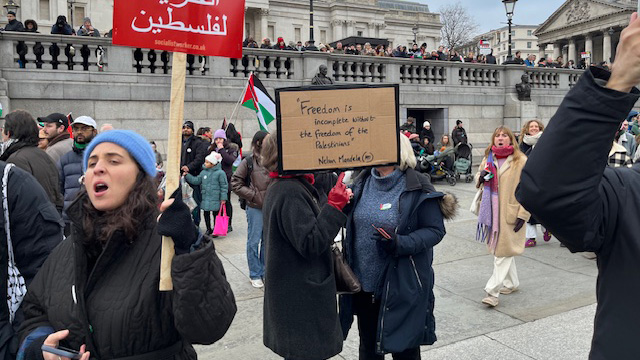 We also invite other workers to share their stories, their war stories, their tactics, wins and their journey of activism and struggle. We look for examples to learn from nationally and internationally. French strike leader-turned-MP Rachel Keke visited UVW in July 2023 and LSE cleaner members went to Brazil to meet domestic workers to exchange learning and experiences. We try to practise Creativity, one of our core values so our “education” is joyful and also led by our members in banner making workshops, community lunches etc.
We also invite other workers to share their stories, their war stories, their tactics, wins and their journey of activism and struggle. We look for examples to learn from nationally and internationally. French strike leader-turned-MP Rachel Keke visited UVW in July 2023 and LSE cleaner members went to Brazil to meet domestic workers to exchange learning and experiences. We try to practise Creativity, one of our core values so our “education” is joyful and also led by our members in banner making workshops, community lunches etc.
The crucial role played by unions throughout our history in societal development should be reinstated in the curriculum in UK schools. Children should learn about how unions have led the fight against exploitation and destitution at the hands of and capital owners through history, as well as building caring communities. In the last few decades these facts have been eradicated from collective learning and memory, negatively influencing people’s views and attitudes towards the union movement.
Younger people are especially hard-hit by problems of precarious work. Does UVW have a plan to reach them?
Young people have not lived through the union struggles, they don’t get to read about them or see them, new actions are needed to inspire them and bring them into the movement.
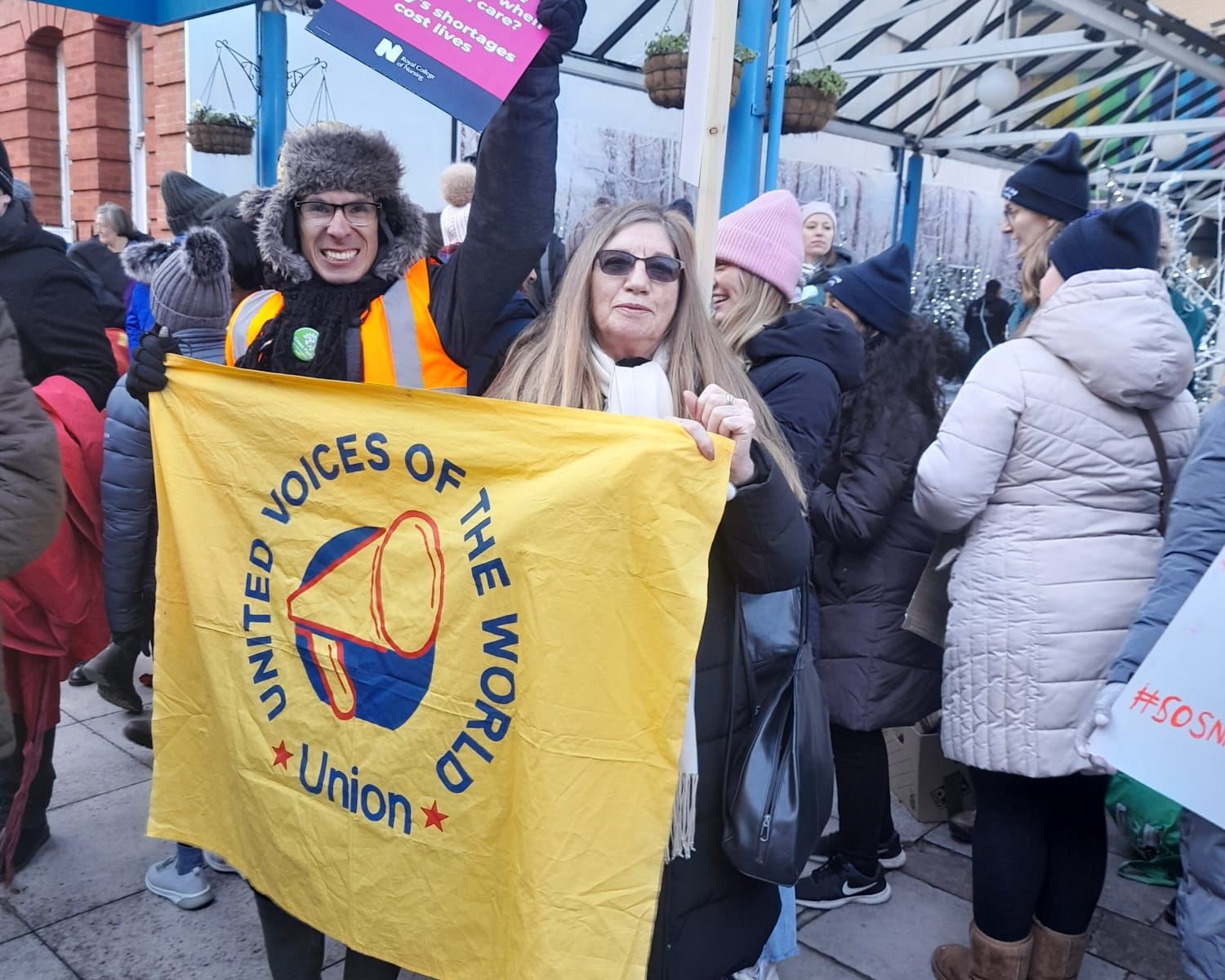 Many of the barriers for reaching young workers like insecure jobs, high turnover, zero-hour contracts are shared by low-paid, migrant and precarious workers. We’ve shown we can overcome these barriers, and we’ve learnt that the best recruitment tool is word of mouth and showing we can win.
Many of the barriers for reaching young workers like insecure jobs, high turnover, zero-hour contracts are shared by low-paid, migrant and precarious workers. We’ve shown we can overcome these barriers, and we’ve learnt that the best recruitment tool is word of mouth and showing we can win.
And young workers are attracted to UVW by the autonomy they have and support they are given to create their own spaces or structures. UVW was the first union to open sectors for sex workers, architectural workers and legal sector workers, and we represent workers in art studios, care homes, and even city farms and private members clubs.
Have the mainstream media been a help or a hindrance?
We have a workers first approach to all our communications. UVW officials are rarely named in our statements. Our members are the main protagonists, they see and read about themselves and their lives in all our output. Whilst we try to use mainstream media strategically to put pressure on decision makers and raise awareness, we don’t rely on them, preferring to spend time on independent outlets such as The Prisma!
Mainstream media tends to be preoccupied with human interest stories presenting workers as victims rather than fighters against exploitation, while avoiding – whether through lack of will, ignorance or ideological bias – a thorough analysis of the structural, systemic and collective class issues we fight against.
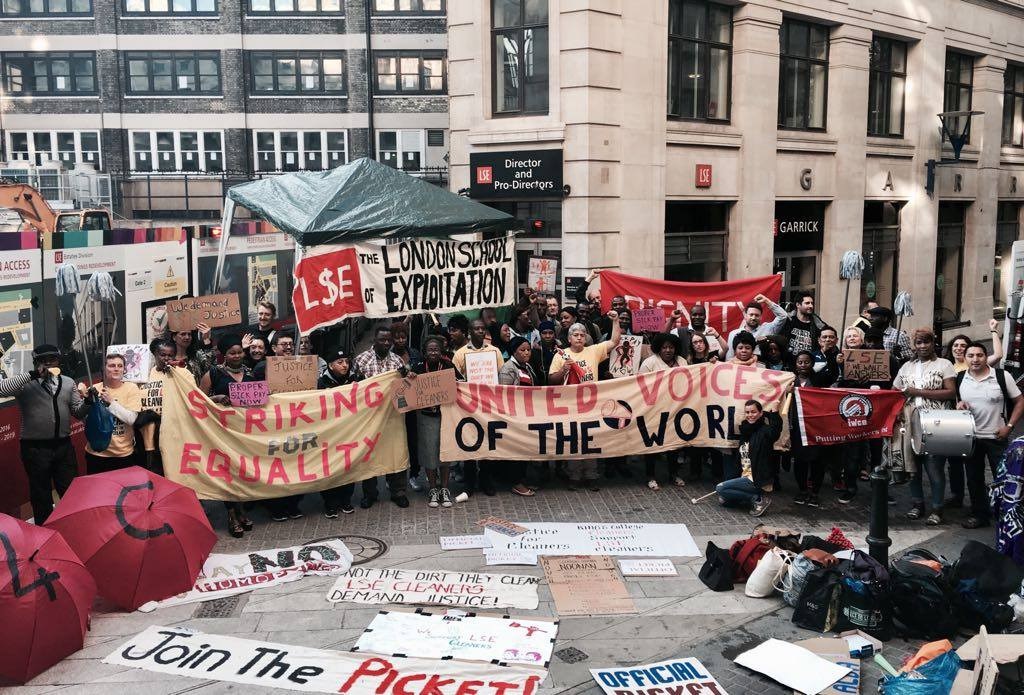 Wider issues UVW campaigns for such as the end of outsourcing and structural race discrimination, are ignored because the media reflect the prevailing liberal ideology, focusing on individual success rather than collective struggle. They will exploit the information value of union members’ personal lives and circumstances without portraying or offering support for their shared experiences of ill treatment or inequality.
Wider issues UVW campaigns for such as the end of outsourcing and structural race discrimination, are ignored because the media reflect the prevailing liberal ideology, focusing on individual success rather than collective struggle. They will exploit the information value of union members’ personal lives and circumstances without portraying or offering support for their shared experiences of ill treatment or inequality.
(Photos provided by United Voices of the World (UVW), authorised for publication.)












.jpg)












